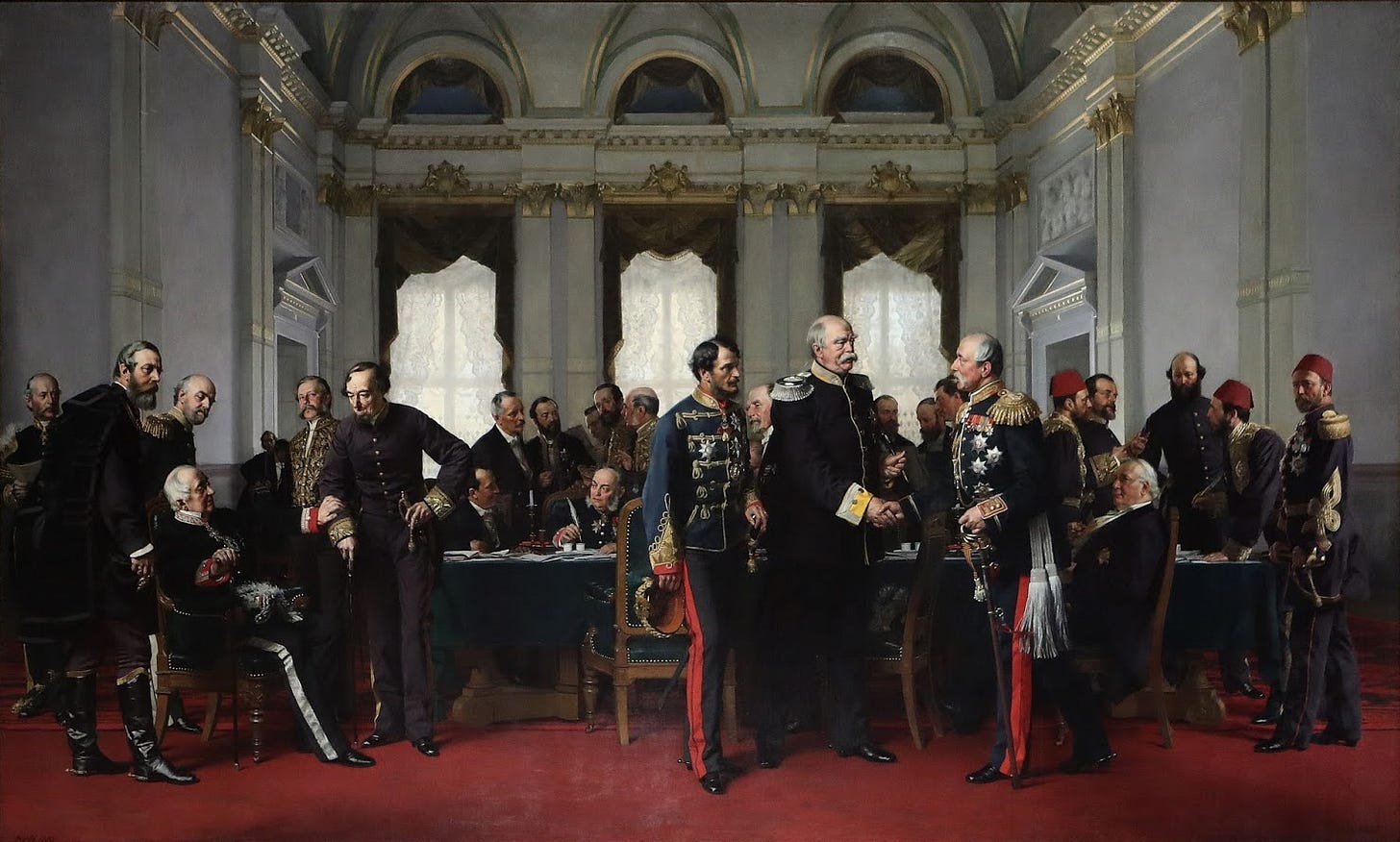
For years — if not decades — academic realists have urged Western leaders to appease Vladimir Putin. After his large-scale invasion of Ukraine, they argued that the “realist” thing to do would be to sacrifice the country. With Trump’s re-election, momentum is growing for the sort of deal that they would approve of — forcing Kyiv to give up its territory for the sake of nominal peace. I decided to republish something I wrote on a previous iteration of this newsletter, explaining why I felt Realism had become intellectually bankrupt.
I considered myself a realist until I realised that as a philosophy it didn't deliver its unique selling point — it described the world as it ought to be, not how it really was. By doing this, it also surrendered power and advantage to the enemies of the West, undermining the claim that states should only be interested in pursuing power at the expense of their challengers and creating some sort of balance. Russia's invasion of Ukraine has brought this truth into stark relief. Academic realists have either urged Western governments to not upset the status quo as Vladimir Putin pulverises it with artillery and cluster bombs, or they suggest we empower him by conceding Ukraine to Russian domination/annexation. They really have not distinguished themselves in this crisis.
My disillusion with realism started a decade ago after reading books like Governing the World and The Internationalists. Although there was a time when states ruthlessly pursued narrowly defined interests in order to increase their power and wealth, over the course of the 19th and 20th Centuries new ideas and considerations became relevant, especially in Europe, Britain, and America. Democracy, international law, human rights, even Marxism. This isn't to say that states didn't continue to pursue their interests, but how the world ought to be was as valid a consideration as how it was - and if it became how it ought to be, then it would also increase one's power relative to one's opponents. This new world increasingly diverted from realism, which advocated its own alternative reality, combined with a lack of imagination about creating power rather than husbanding a finite amount of power. After the Second World War, American realists wanted to withdraw from Europe and leave alone inter-continental rivalries. But people like Dean Acheson and Averrell Harriman had an idea of how the world ought to be, as well as a keen sense of American power and how to use it to get more of it, and committed the United States to Europe and resolved Franco-Germany rivalry, which led to the creation of NATO and the EU - all of which boosted American power relative to its opponents.
With Ukraine, realists are offering the same poverty of thinking. In dealing with the Russian invasion, it is of course important for Western policymakers to be cautious, strategic, and realistic — all attributes which realists try to claim a monopoly. But when it comes to the big picture, realists are living in a different world. Putin articulated a desire to overturn a stable and stabilising order that prohibits states from forcibly redrawing their borders and annexing the territory of others. He then put that desire into practice in Ukraine. Rather than appreciate the threat that this poses, many realists seem to be caught up in trivialities. Some caution the West to not upset the status quo when IT HAS ALREADY BEEN VIOLENTLY UPSET. Others, husbanders, want to sacrifice Ukraine and therefore empower Russia in the hope that the threat then goes away. But although we might not be interested in Russia, they are interested in us — and Ukraine is just the start. There are also those who crow to liberals: "You oppose war yet support Ukrainians fighting? I am very smart." To paraphrase JFK: Who cares if John Mearsheimer is more insightful than Francis Fukyama? Russia is invading Ukraine.
I wouldn't have bothered writing this article if it hadn't been for the appearance of the idea of a no-fly zone for Ukraine. It is a patently incautious, imprudent idea which pretty much every Western government has knocked back, but it's given realists an issue on which to flaunt their "takes" without having to really wrestle with the thornier, more difficult policy choices that Ukraine poses both them and the West generally. They can argue with others on the periphery of the conflict about something that won't happen. Vladimir Putin poses a threat to the international order. He has made that explicit in both words and actions. Of course this crisis needs to be handled with care and tact and strategic nous, but it also needs a big, commensurate response that prevents Russia accruing power and territory at the expense of everyone else. Realists ought to be appreciate this, but instead they're caught up in yesterday's arguments and yesterday's fears; a world how it maybe was and how they think it ought to be, but not how it is right now.



